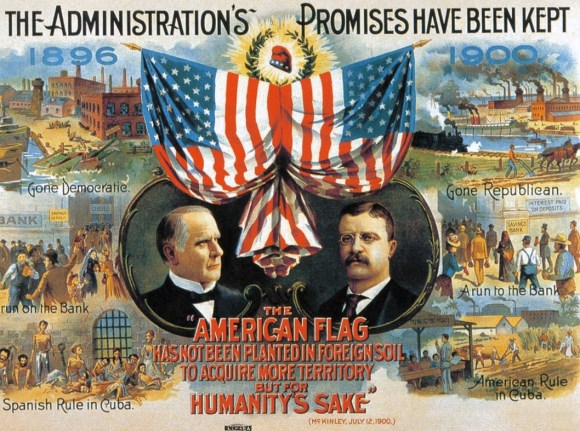
Traditionally, news reports relay current events, which layer each other through time until historians excavate them to get a more patient perspective. On Wikipedia, that process can be telescoped to give a focused view of the past and present, such as with the recent historic visit to Cuba by U.S. President Barack Obama.
Wikipedian Kudzu1, one of the main editors of the United States–Cuban Thaw article on Wikipedia, watched the trip with interest. “I think a lot of us feel like we are, in a small way, writing an early draft of history,” Kudzu says.
Last week news outlets around the globe followed Obama’s delegation around the island nation, while Wikipedians evaluated and collected the coverage and added it to a fascinating history laid out in the 5,335 word Cuba–United States relations article:
In 1820, Thomas Jefferson thought Cuba was “the most interesting addition which could ever be made to our system of States” and told Secretary of War John C. Calhoun that the United States “ought, at the first possible opportunity, to take Cuba.”
The country did so in 1898, intervening in Cuba’s war of independence against Spain in 1898. By July 1900, US President William McKinley and 42-year-old vice presidential candidate Teddy Roosevelt pledged that “the American flag has not been planted in foreign soil to acquire more territory but for humanity’s sake.”
In 1928, US President Calvin Coolidge visited Cuba in the only foreign trip he took during his administration.
In 1959, the Cuban Revolution established a new government with Fidel Castro at its head, deposing the US-friendly dictator Fulgencio Batista. Despite Castro’s visit to the US in 1959, relations slowly deteriorated and a US-Cuba trade embargo was put into place by the former.
And in March 2016, Obama presided over a historic attempt to rekindle economic and diplomatic relations after decades of embargos and hostility. Unlike previous chapters in U.S.-Cuban history, this one was added to Wikipedia, just one step behind real-time news.
Kudzu says he works on articles such as Cuba-United States relations and United States-Cuban Thaw “to inform readers about what is happening, using the best, most reliable, and most up-to-date information we can, and with an eye toward the future. I don’t know if anything substantial will come from the Cuban Thaw, and this period of rapprochement could end up turning sour, but there’s no question it is history in the making.”
The United States-Cuban Thaw article covers many topics in its nearly 3,500 words, including “Easing of travel and trade restrictions,” “Guantanamo Bay controversy,” and even “Media perception.” Several sections have been updated in the 61 edits the page has had in the last month alone, and it boasts 95 citations.
“Newsweek reported that the stock market jumped once elements of the Cuban Thaw were reported,” the article states. “Reuters reported that the thaw would ‘make it more likely the Cuban government will extradite fugitives sought by U.S. officials.’ The Associated Press reported environmentalist concerns that the thaw would lead to the opening of ‘one of the most prolific oil and gas basins on the planet,’ which sits off the coast of Cuba.”
Kudzu says updating current events using news sources allows some distance and perspective. “We’re not on a press deadline. We have the luxury of being able to wait and be cautious and make sure we get it right…though we also have the competing luxury of being able to edit, change, and update our work as events develop or new information emerges.”
Obama has returned to the U.S. and press reports about Cuba have died down in the past few days. Wikipedians continue to update relevant pages.
Jeff Elder, Digital Communications Manager
Wikimedia Foundation

Can you help us translate this article?
In order for this article to reach as many people as possible we would like your help. Can you translate this article to get the message out?
Start translation